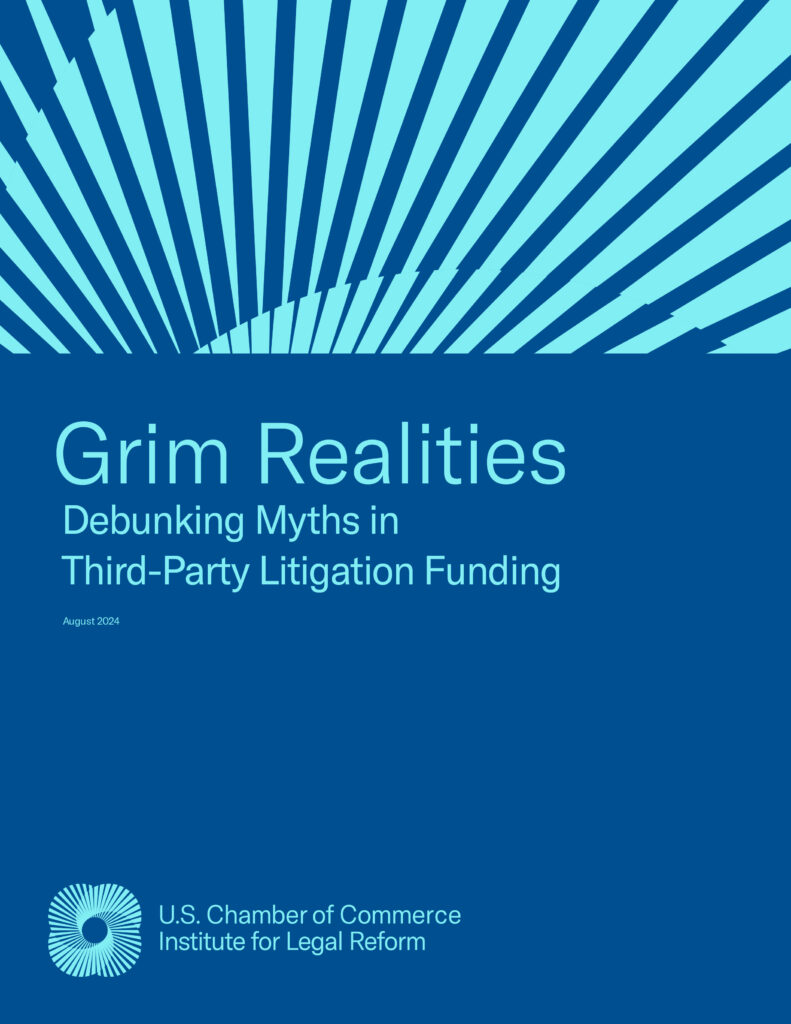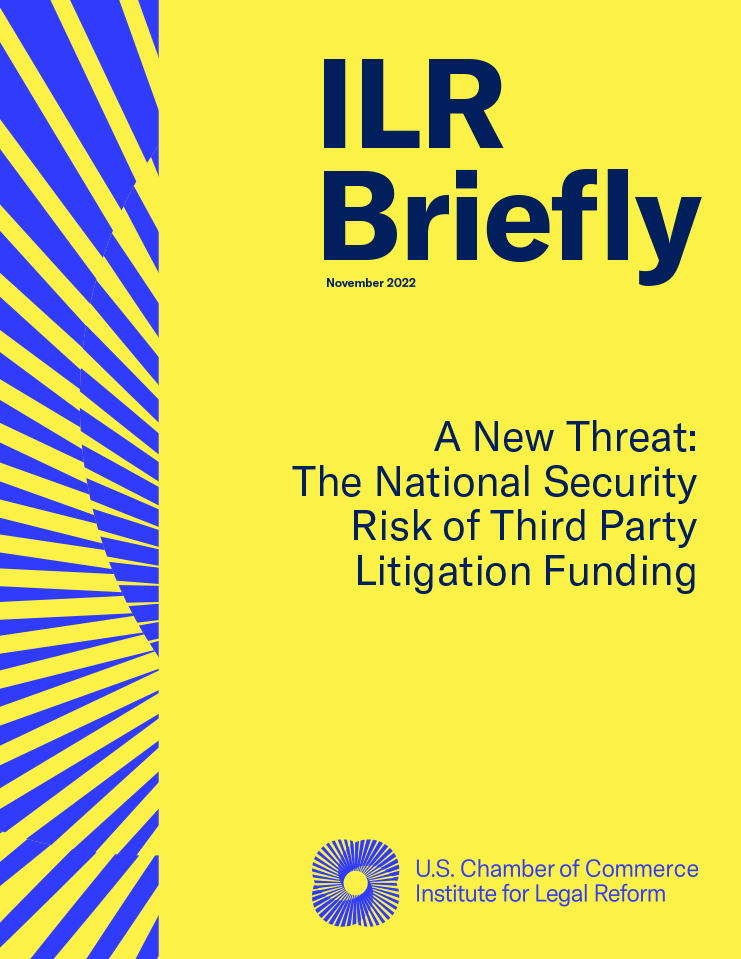Third-party litigation funding (TPLF) continues to be a major problem in the U.S. legal system. We’ve written extensively about TPLF and its shortcomings, both on this blog and in research. But to level-set: TPLF is when investors pay for lawsuits in exchange for a share of any settlement or judgment. And, in most cases, the presence of a funding agreement (let alone the agreement itself) is never disclosed to the court or the other parties in litigation.
TPLF brings up some big questions about transparency, fairness, and even national security. Furthermore, the way the federal tax system currently treats these high-paying “investments” only makes things worse, creating a loophole that lets foreign funders avoid paying U.S. taxes on their litigation profits—all while contributing to out-of-control tort costs and potentially endangering national interests. It’s time for Congress to step in and fix this mess.
Senator Thom Tillis (R-NC) and Rep. Kevin Hern (R-OK) are leading the charge to address one problem with the current system by ending the tax break for litigation funders in the tax code with the Tackling Predatory Litigation Funding Act (S. 1821/H.R. 3512). Their bill would close the loophole that allows both domestic and foreign litigation funders to pay lower, capital-gains tax rates—which, in the case of foreign funders, results in them paying no U.S. tax at all—on their lawsuit investment earnings. Instead, all litigation funders would pay tax at the ordinary income rate, plus a 3.8% surcharge for using our court system as their personal investment vehicle. This change would help discourage abusive lawsuits and create a fairer playing field for American businesses.
The TPLF industry is booming. According to Westfleet Advisors, in 2024 alone, 42 funders held about $16 billion in litigation “assets under management” in U.S. commercial litigation—which is itself just a subset of the TPLF market. According to reporting from Bloomberg Law, some of the biggest mass tort cases—like the Roundup claims against Bayer AG and the talc lawsuits against Johnson & Johnson—have been bankrolled by investment funds such as Fortress Investment Group, which is mostly owned by an Abu Dhabi sovereign wealth fund. This flood of foreign money into U.S. lawsuits isn’t just a business story; it’s a national security concern. It opens the door for foreign adversaries to use our legal system for their own profit and benefit. The tax code makes things worse by letting foreign investors treat their lawsuit investment profits as capital gains, which means they don’t normally have to pay U.S. taxes on those earnings. This special treatment encourages foreign investors to put their money into lawsuits instead of helping businesses create jobs and boosting the economy. And the costs of all this litigation? They get passed on to workers, consumers, and shareholders—essentially acting as a hidden tax on everyday Americans that is effectively encouraged by our own tax code.
A recent coalition letter to Sen. Tillis and Rep. Hern, signed by a wide range of businesses and trade groups and featured at the bottom of this post, shows just how much support there is for these changes. The Wall Street Journal and the Washington Legal Foundation have also weighed in, offering a detailed look at how the current tax treatment of TPLF distorts the system.
The bill from Sen. Tillis and Rep. Hern is a much-needed fix. By taxing litigation funders the same as plaintiffs, it would help remove the incentives to invest in lawsuits over productive, job-creating businesses. It would also stop the U.S. tax code’s subsidization of foreign adversaries’ ability to use our own legal system against U.S. companies.
In addition, and as alluded to above, one of the other major problems with TPLF is its lack of transparency. Right now, foreign investors can fund lawsuits against U.S. companies—sometimes even competitors—without anyone knowing who’s really behind the case or what sensitive information they’re getting access to. There have even been cases where Russian oligarchs, dodging sanctions, have funded lawsuits in the U.S. This kind of secrecy only adds to the risks of the practice.
The Protecting Our Courts From Foreign Manipulation Act would help address that problem. It would ban foreign governments and sovereign wealth funds from investing in U.S. litigation. It would also require full disclosure of any foreign funding in lawsuits, making it harder for foreign entities to secretly influence U.S. legal outcomes. That bill was introduced in the House earlier this year by Rep. Ben Cline (R-VA) and is expected to be reintroduced in the Senate soon by Sen. John Kennedy (R-LA).
Also on the transparency side, Rep. Darrell Issa’s (R-CA) Litigation Transparency Act would require disclosure of TPLF agreements in all federal civil cases. This means judges, plaintiffs, and defendants would know exactly who is funding a lawsuit and who stands to benefit from it. By shining a light on these arrangements, the bill would help protect the integrity of our legal system and prevent hidden agendas from shaping outcomes.
In the end, Sen. Tillis and Rep. Hern’s proposal to close the TPLF tax loophole will ensure proper tax treatment for litigation funders and will level the playing field. And the proposals by Reps. Cline and Issa and Sen. Kennedy are necessary steps toward a more transparent and fair U.S. legal system, which will protect the interests of American businesses and consumers alike.



